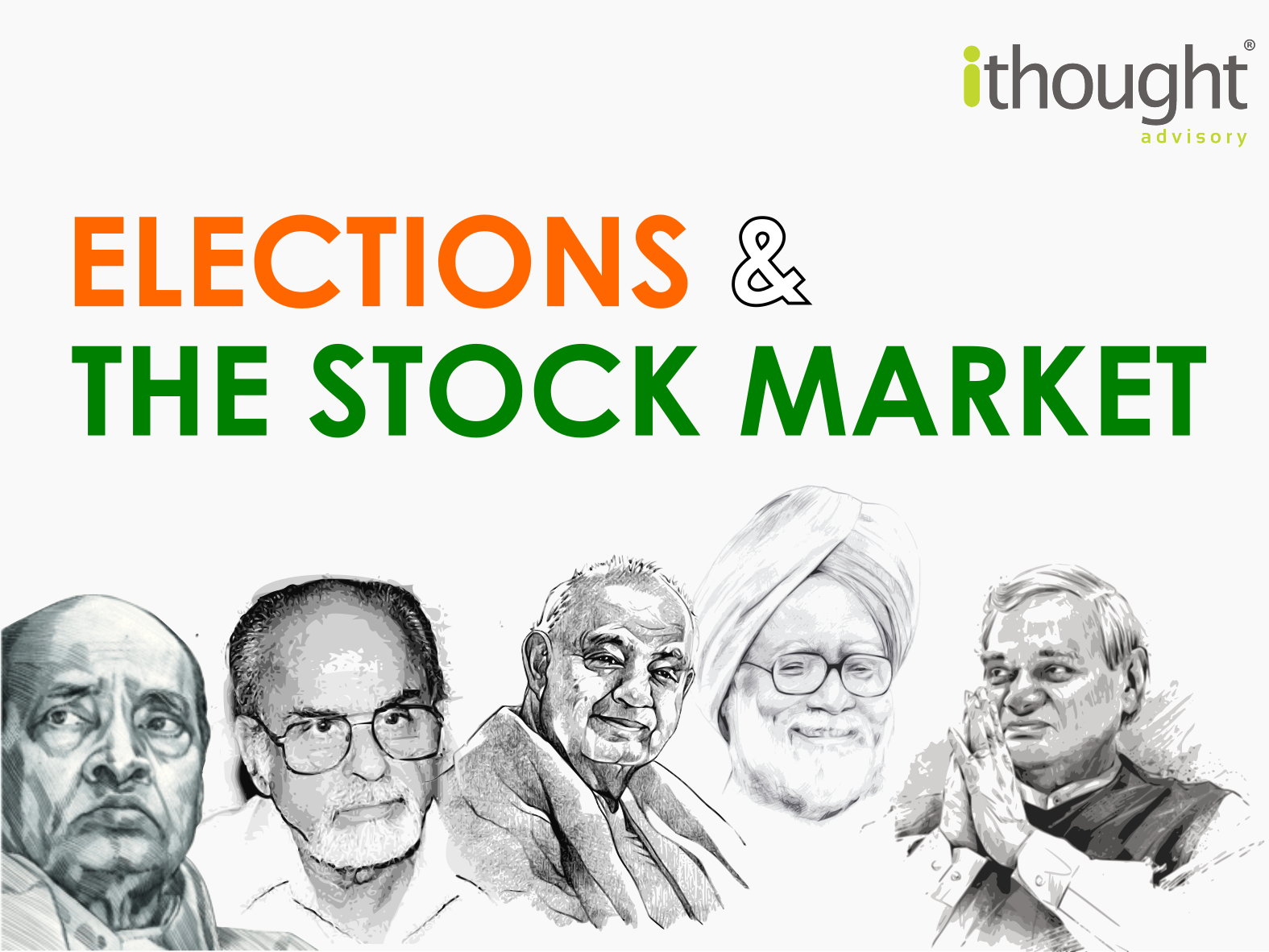
Elections bring about a speculative element about what they could mean for the stock market. The stock market is fickle and reacts to all news surrounding elections. If we take a step back to look at historical trends, elections seem to have no long-lasting impact on the stock market.
Rewinding to 1996 – the general elections resulted in a hung parliament. Prior to this, the stock market (Sensex) rallied from 3300 to 3800. In the post-election period, the BJP formed a government that lasted less than two weeks. The Congress declined to form a government, creating room for the United Front. This coalition government was wrought with internal tensions. Meanwhile, the Sensex stood at 3600 levels. From 1996-97, the Sensex touched a low of 2745 and a peak of 4069. In April 1997, a change in political leadership averted another round of elections. The Sensex returned to 3800 levels. Eventually, in 1998, India was forced into another round of elections which produced a government that lasted only a year before it collapsed. Simultaneously, the Sensex fell to 3400 and made its way back to 3700 in time for the 1999 elections. Political stability returned in the 1999 post-election period and the Sensex finally crossed 5000 levels.
Today, the Sensex stands at 38,600. It would be naïve to assume that the stock market isn’t sensitive to elections, but it would be equally naïve to assume that elections will determine its long-term trajectory. In the long run, policies, macroeconomics, fiscal discipline, and innovation drive the stock market. History illustrates that the stock market is resilient to political instability. The stock market narrative could remain positive in this post-election period if the new government shows fiscal prudence and manages inflation well.